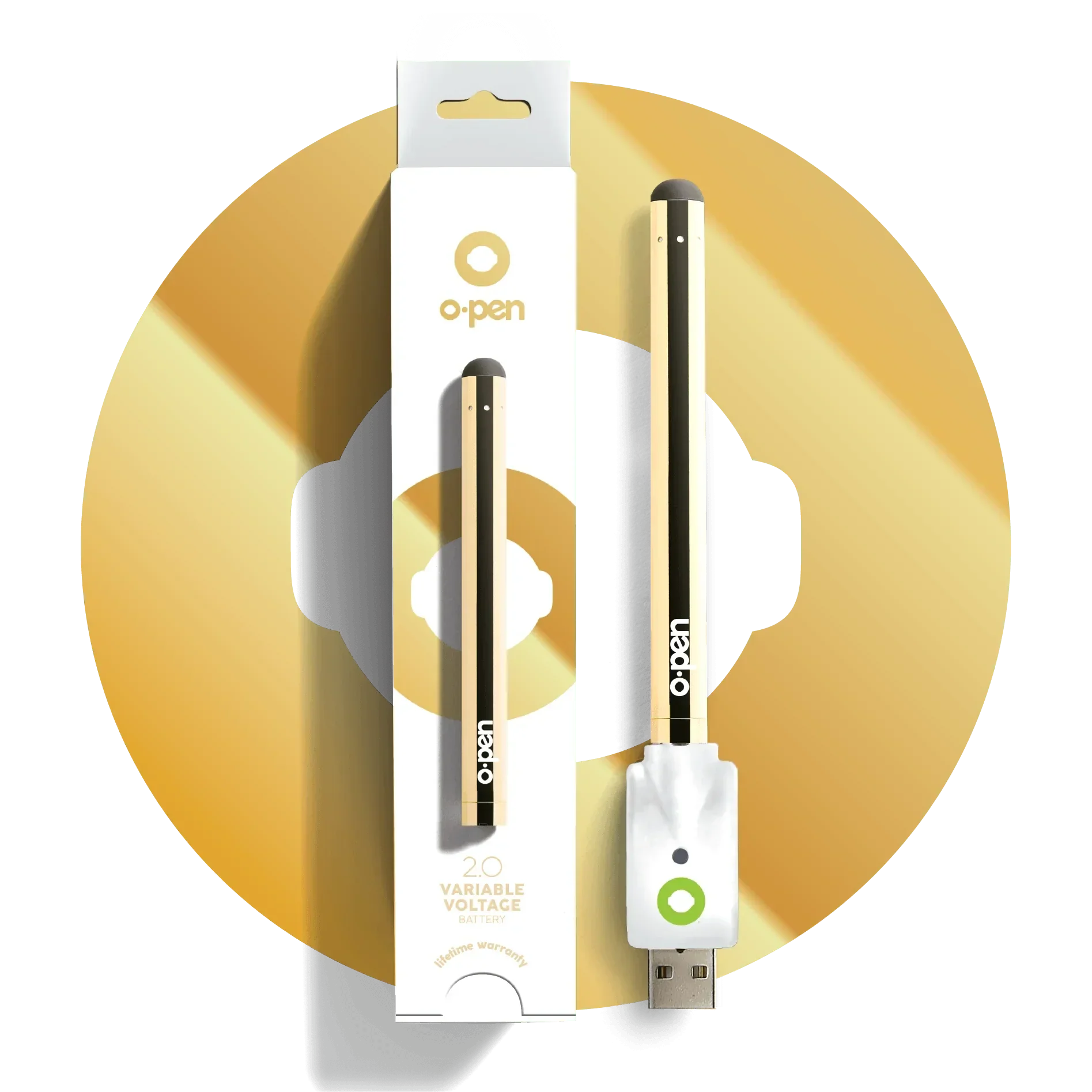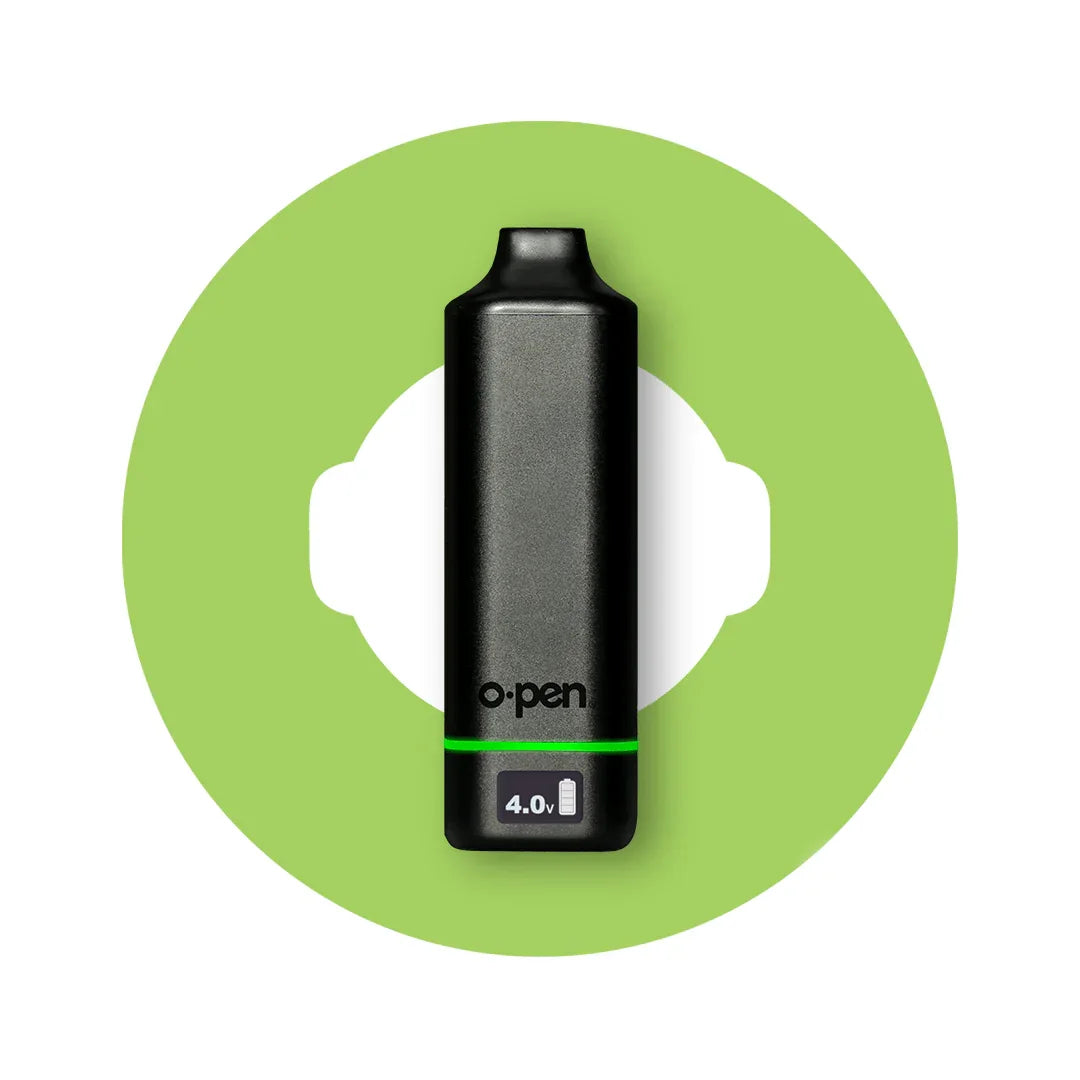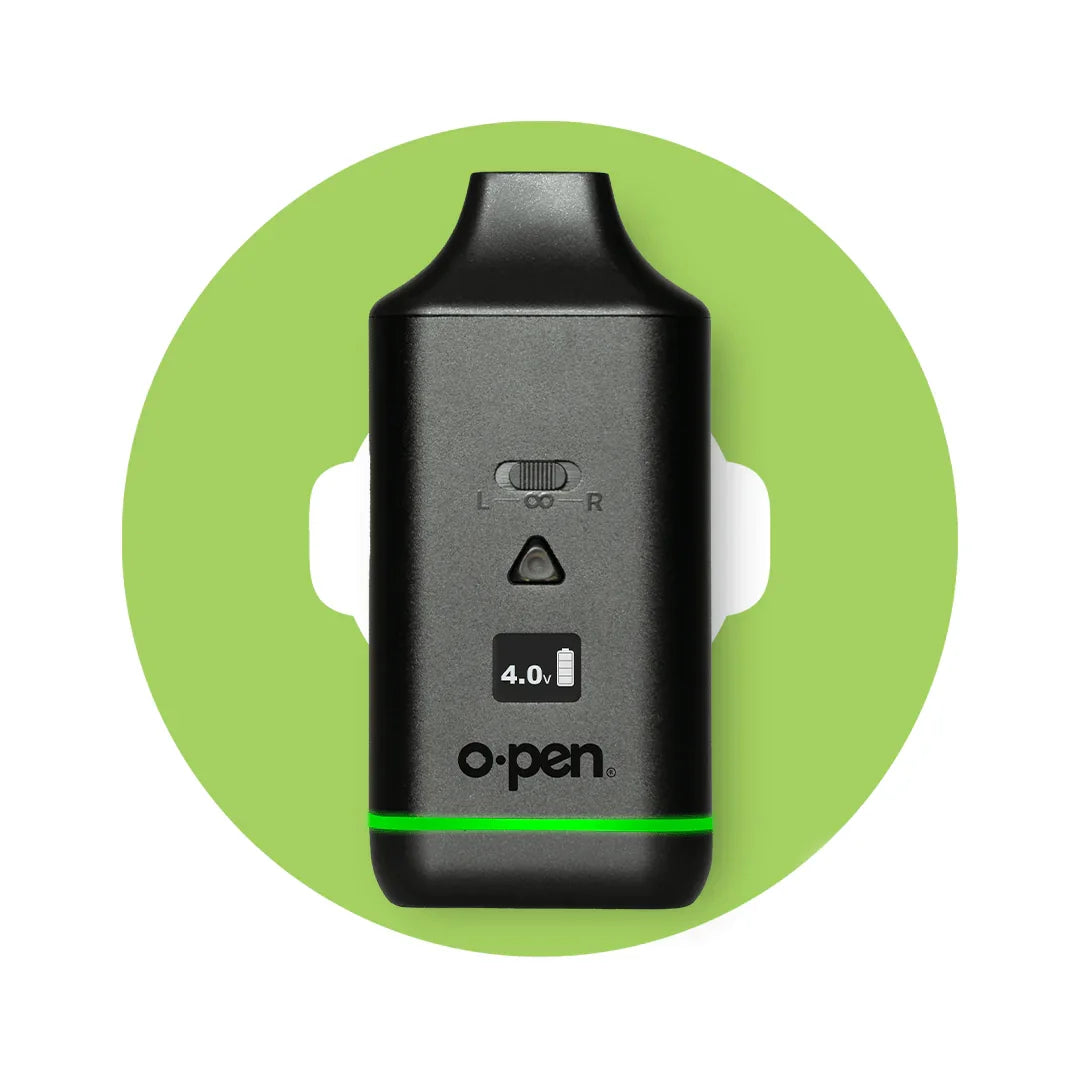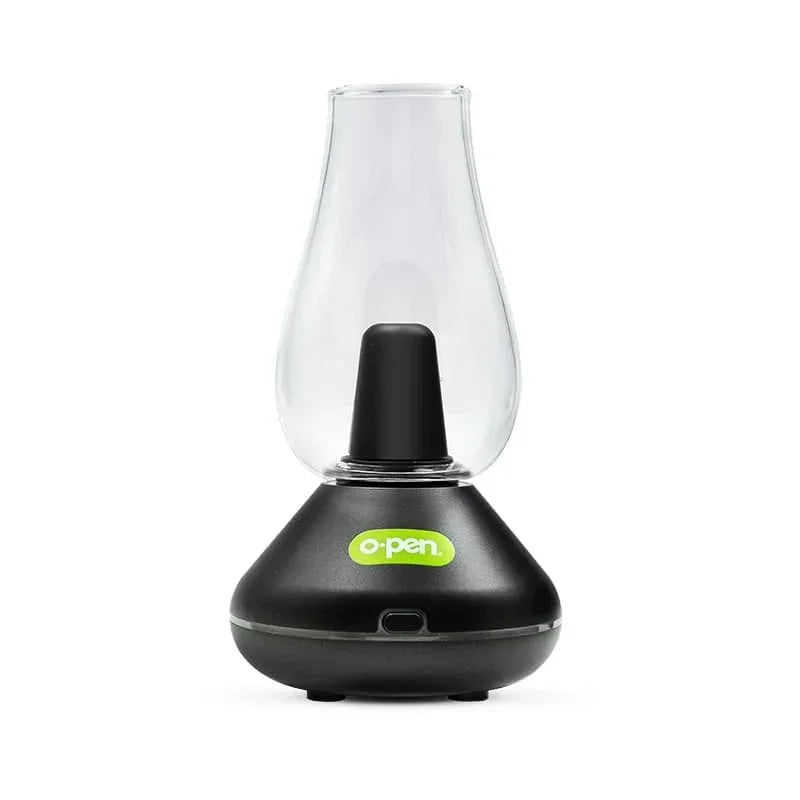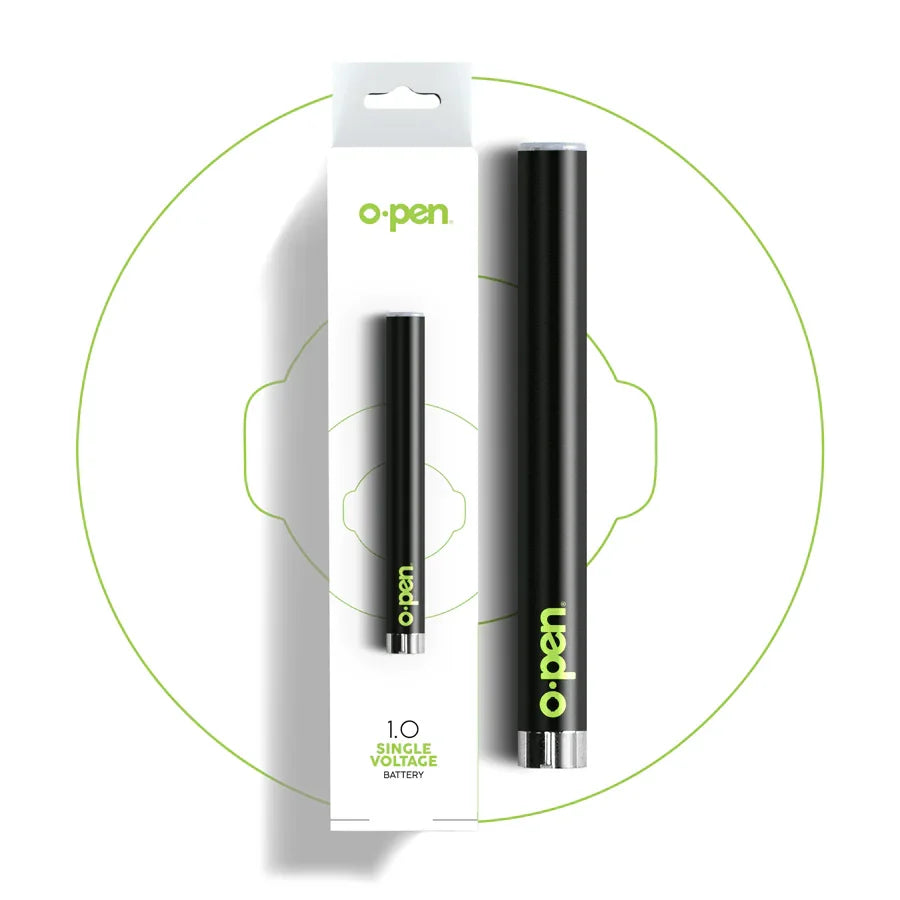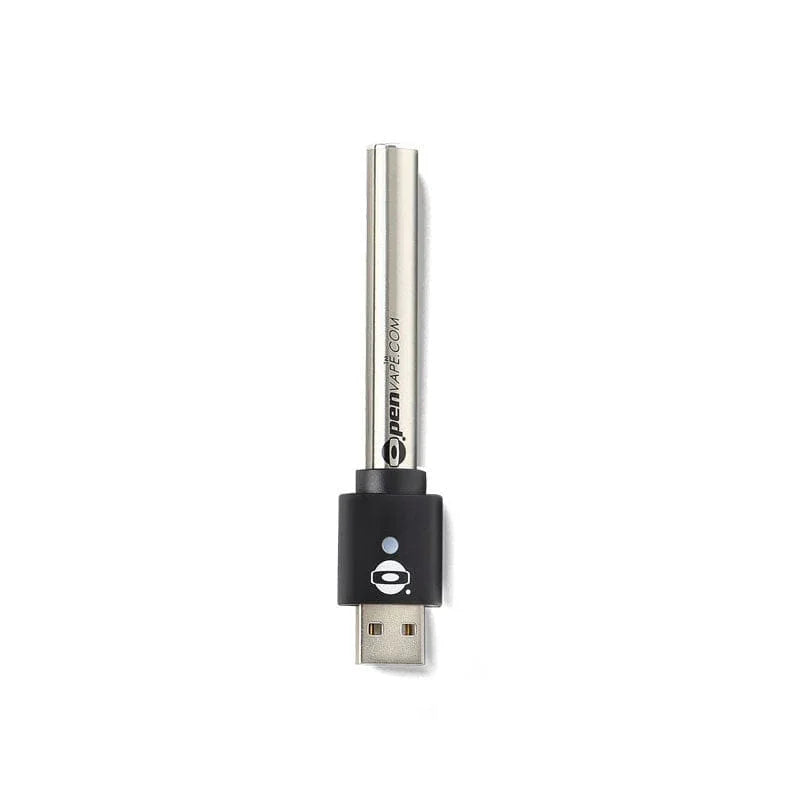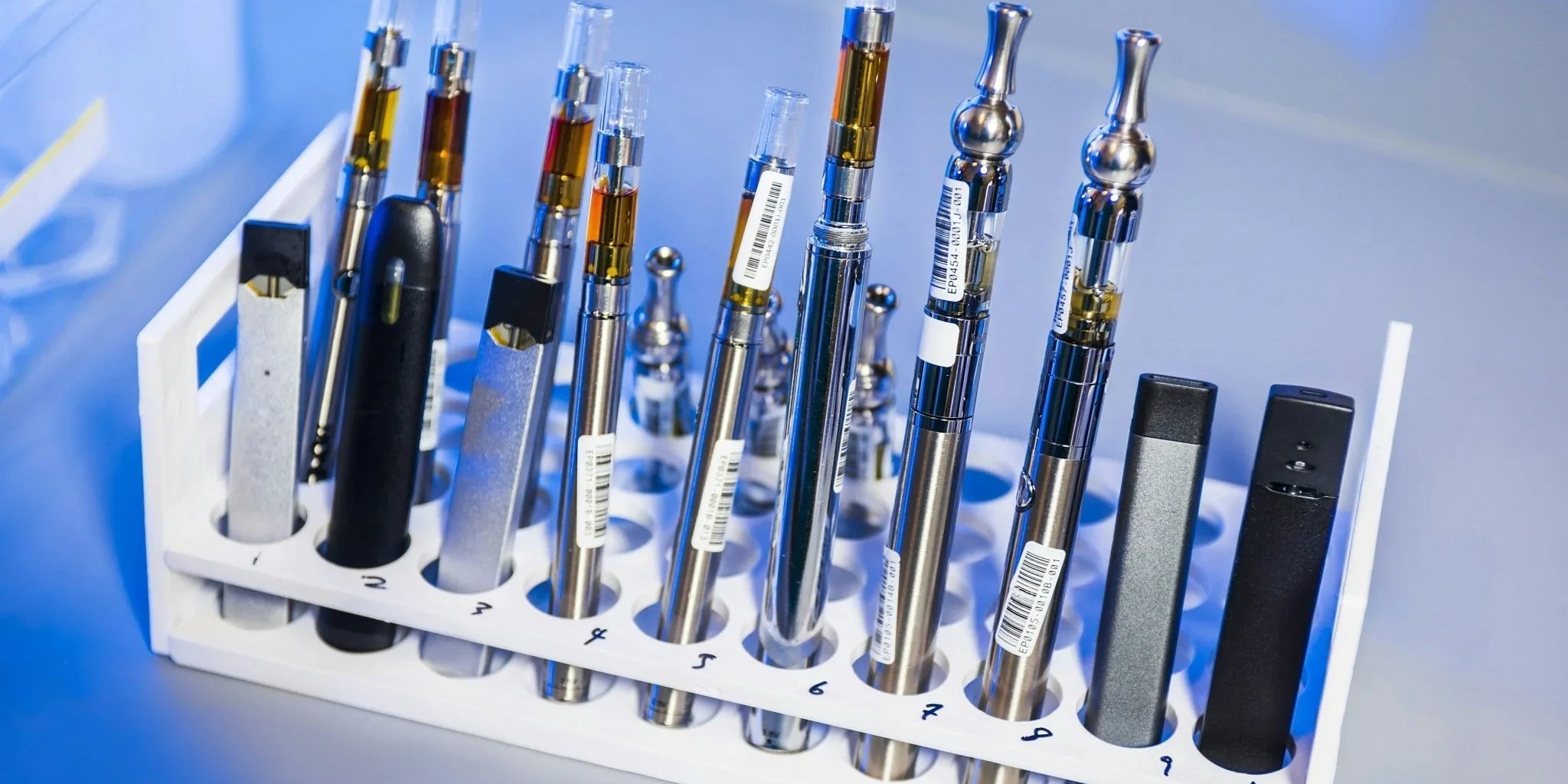The Relationship Between Reggae and Marijuana

If asked, “What does marijuana sound like?” the laid back rhythm of reggae likely comes to mind. Reggae music and marijuana have a long history together, with a relationship that is common pop-culture knowledge. But how did this come to be?
On this 4/20 (...and 4/21), O.pen is celebrating the connection between Reggae and marijuana. In this article, we’ll explore the following questions:
- How are reggae and marijuana connected?
- What does “ganja” mean? What’s the history of the word ganja?
- How did reggae music start and how did marijuana influence its creation?
- What is Rastafarianism and how is it connected to marijuana and reggae music?
- Why do Rastafarians celebrate 421 instead of 420?
- What’s the history of Jamaican cannabis use--culturally, medicinally, and spiritually?
- What’s the state of marijuana legalization in modern Jamaica?
- What’s the history of popular marijuana strains from Jamaica?
- What Reggae classics pair perfectly with marijuana.

Reggae and Marijuana - Why They’re Related
Music lovers and creators of all genres have been known to be fans of cannabis, even writing love songs to a certain “Mary Jane.” But if one had to pick a style that perfectly paired with marijuana, the smooth beats of reggae would likely be at the top of the list.
Jamaica is considered the home of reggae music, a country where cannabis use has been commonly used--creatively, medicinally, and in generally all areas of life--embedding marijuana as part of its culture. Reggae music was also popular among cultural and political movements that also happened to like cannabis. Reggae and ganja were destined for friendship from the beginning.
Jamaica is equally well known for its connection with cannabis, or “ganja.” How was marijuana introduced to Jamaica, what does ganja mean, and how did it become the name for marijuana in Jamaica? The answers to these questions also reveal how marijuana became so closely connected with reggae music.
Jamaica’s Marijuana History
Jamaica was originally populated by the Arawak peoples from South America who occupied the Greater Antilles over 2,500 years ago, and the indeigenous Taíno. After its “discovery” by Christopher Columbus during his second voyage to the West Indies in 1494, Spanish colonists settled on the island, renaming it Santiago and developing settlements. As the native population became increasingly devastated by forced labour deaths and disease, colonists brought in slaves from Africa.
In 1655 Britain captured Jamaica from Spanish colonizers and used the island for sugar plantations. After slaves were emanicipated and human trafficking banned within the British empire in 1807 and 1838, most free people in Jamaica weren’t interested in working for sugar cane plantations. Needing a new labor source, Britain went outside Jamaica (and around their slavery laws) to India. Post-slavery days were still rife with hardship and poverty for Jamaicans, whose workforce couldn’t compete with free forced labor of endentured Indians. Strife of everyday living and a yearning for something better contributed to the soulful lyrics that would further shape reggae's identity.
Jamaicans call weed “ganja,” the Hindi word for buds of a marijuana plant.
Among other cultural influences, Indians brought cannabis knowledge including the word “ganja,” which specifically refers to the buds of a marijuana plant. (The Word Ganja: Origins and Meaning). It’s assumed that the Indians introduced marijuana to Jamaica since this Hindi word was adopted to describe the plant (Ganja in Jamaica). As it turns out, Jamaica has one of the best possible climates for growing cannabis, making marijuana abundantly accessible. The buds of the marijuana plant were soon incorporated into various aspects of Jamaican life, including religious ceremonies (which we’ll get to later).
Modern Ganja
Marijuana remains an integral part of Jamaican life. Islanders are commonly seen kneading the herb in the palms of their hands and smoking freely. (Rasta, Reggae and Remedy: Cannabis in Jamaican Culture) It’s estimated that over 37,000 acres of marijuana is currently grown across the island of Jamaica, making it no surprise that such a fixture of Jamaican lifestyle would also feature in a national musical style.
Since reggae is entwined with social justice, and marijuana has long been a pivot point for political and social agendas, marijuana legalization is a common reggae theme. “Most Jamaican artists have herb songs, not just telling you to smoke it but songs about getting it legalized, and from the very first Rebel Salute 21 years ago, artists have put forward that message so our country can benefit from legalization,” says Tony Rebel, Rastafarian, producer, and cannabis-friendly festival organizer. (Billboard Magazine) Even the most recognizable and renowned figure in reggae music, Bob Marley, is famous for being pro-marijuana as much for his inspiring beats and socially aware lyricism (Why Do Marijuana and Reggae Go Together?)
While strongly connected with weed, reggae isn’t to be stereotyped as strictly “pot-smoker music” but rather as a distinctive style promoting a message of peace, unity and spiritually. (Reggae: Not a synonym for marijuana). Reggae and marijuana do, however, share a common heritage and agenda, making them complimentary facets of Jamaican culture.
Bob Marley: Jamaica, Reggae, Rasta & Ganja Come Together
Arguably Reggae’s most popular and influential artist, Bob Marley, was equally known for his love of cannabis and Rastafarian faith. Marley converted to Rastafarianism from Christianity in the mid-1960s, many years before becoming famous.

While a pro-weed activist, Marley is said to have not used ganja recreationally; as a devout Rasttafari, he viewed marijuana as a holy herb and a gateway to spiritual enlightenment. Marley attributed marijuana and the divine connection nurtured by it as what allowed him to become the artist and poet he was.
After the “Wailers” band broke up, Marley switched from the ska and rocksteady styles to the new sound soon to be called “reggae.” Marley's first major hit song was 1975's "No Woman, No Cry," and that was followed by his album "Rastaman Vibration," which made the Billboard Top 10 albums list (LiveAboutDotCom). As Marley’s audience increased with his fame, so did his promotion of peace and cultural understanding through his music. Years after his death, Marley is beloved by his country as an ambassador of Jamaican culture, revered by the Rastafari as a prophet, esteemed as a reggae artist, and honored by marijuana lovers around the world.

The History of Reggae Music
The name reggae was originally taken from the Jamaican phrase “rege-rege” which means “rags” or a ragged style of clothing and describes a loose, raggedy style of music. Reggae officially developed in the 1960s as an “evolution of the Rocksteady and Ska musical styles” (History of Reggae Music). This unique rhythm provided the backdrop for soulful lyrics expressing the struggles and emotions of the everyday Jamaican, not unlike the American folk rock of the same era.
Reggae is uniquely recognizable from its parent styles by its combination of lament-like chanting as singing and an emphasis on what’s called a ‘syncopated beat,’ which means alternating between emphasizing a strong and accent beat--a calling card for the baseline sound of Funk. Heavy use of Jamaican vernacular also sets reggae apart from other music.
As a signature form of Jamaican music, reggae is also closely associated with the Rastafarian religion and social movement rooted in Jamaica (Reggae Music Guide: A Brief History of the Reggae Genre) Hence, many reggae musical artists are Rastafarian and often include Rastafari spiritual and social beliefs in their lyrics. Reggae has also influenced other musical styles with “socially-conscious lyrics” such as hip-hop.
Reggae broke ground as one of the first genres beyond Anglo-American popular music to become truly global and stands as one of Pop music’s only rivals. This degree of popularity and influence is all the more impressive considering Jamaica’s tiny island population. Reggae is even regarded as the archetype of “World Music.” (World of Music) Master Class Articles attributes this to reggae’s “familiar yet exotic soundworld, its ‘local’ expression rooted in a particular place and distinctive community and its ‘global’ envoicement of pan-African liberatory politics, confident globalism and otherworldly spirituality.” (Reggae Music Guide: A Brief History of the Reggae Genre)
While Jamaica is also home to a diversity of traditional music, always revolving around work, play and spirituality, reggae became the musical melting pot.

Rastafarian Use of Marijuana
As reggae is Jamaica’s signature sound, so is Rastafarianism for spirituality. While there are different strains of Rastafarian belief—it’s a necessarily loose and anti-authoritarian faith—all identify symbolically with the twelve tribes of Israel and share one prophet: Ras Tafari. “Rastas” (as the followers of Rastafarianism are called) consider Ras Tafari to be the messiah who will bring black people back to Zion. Ras Tafari is the given name of Emperor Haile Selassie I, ruler of Ethiopia from 1930-1974, which was Africa’s only independent nation at the time. (Quartz Magazine) Ras, literally “head” is a title akin to “governor,” while Tafari was Haile Selassie’s given first name.
The central idea that this black skinned king fulfilled a prophecy sprang from Marcus Garvey’s interpretation of the Bible. Garvey was a Jamaican writer and activist living in New York who helped start the black nationalist movement in the United States. In 1928 he’s famously quoted with the biblical sounding phrase, “Look to Africa, when a black king shall be crowned, for the day of deliverance is at hand.”
Ras Tafari’s ascent to the throne resonated with Jamaicans in part because this free, self-ruled African nation and its black king represented their aspiration to a “divine” heritage rather than one of slavery, oppression, and racism. Jamaicans found inspiration to “write a new history for themselves.”
How Rastafarians Use Marijuana
Rastas use marijuana as a sacrament during their spiritual sessions. Considered a “holy herb,” marijuana is used to help awaken spiritual awareness and deepen their faith. (Ganja in Jamaica) For Rastafarians, as well as many Jamaicans in general, marijuana is essential to opening the mind for meditation, allowing connection to “Jah,” a higher spiritual being or “God,” and paving the way for spiritual enlightenment. An interview by Rolling Stone Magazine quotes Ras IyahV, a Rastafarian board member of Jamaica’s Cannabis Licensing Authority (CLA), as saying: “Just as a person eats when they’re hungry and drinks when they’re thirsty, they smoke ganja when they want to nourish their souls.”
“Just as a person eats when they’re hungry and drinks when they’re thirsty, they smoke ganja when they want to nourish their souls.” - Ras IyahV, Rolling Stone Magazine
Hence, Rastafari will probably not use the term cannabis, marijuana, or weed, explains an article by the BBC. Instead, it’s known simply as “wisdom weed,” or “holy herb,” which conveys the true purpose of the plant to Rastafari. This reference is also based on bible verses, such as Psalm 104:14, “He causeth the grass for the cattle, and herb for the services of man.”
This sacred and intentional use means a moderated marijuana consumption that may surprise some Western cannabis lovers, who perhaps overly romanticized visions of Jamaican weed smokers.

Rastafarianism, similar in this respect to some Native American tribes, do not see cannabis as a "fun, party drug", but as a way to aid in meditation, gain wisdom, and for use as a sacrament (Lab Roots Magazine). While Rastas may also use marijuana as part of their everyday lifestyle, when used for religious ceremonies the intention is clear and specific. Cannabis’ effects can be very dependent on context, cues, friends, and behavior, which influences the different experience between religious, recreational, or medical use. The intention of gaining closeness to the divine creates a different mindset and effect when smoking ganja (National Library of Medicine). (For a quick read on how mindset and setting can affect cannabis use, check out the article “Set & Setting: Mindfully Creating a Great Cannabis Experience”)
“For Rastafarians and Jamaicans in general, the consumption of ganja is a matter of moderate and integrated use.” - Ganja in Jamaica
An anthropological study examining marijuana use in Jamaica, Ganja in Jamaica, made this observation: “True, Rastafarians usually do smoke regularly and more frequently than non-Rastafarians, yet it is still a matter of moderate and integrated use, like the consumption of ganja in Jamaica in general. In the streets of Jamaica you will seldom come across people heavily intoxicated from smoking ganja. Larger amounts of ganja are only consumed at special occasions like religious ceremonies or during an afternoon or evening in the circle of friends.”

The Rasta culture is also heavily steeped in reggae music, further connecting entwining Jamaica with weed, reggae, and Rastafarianism.
Why Rastafarians Celebrate 4/21 Instead of 4/20
While Rastafarians don’t officially celebrate weed’s holiday of 4/20, they do recognize the day after because 4/21 (coincidentally or providentially) is the day that Rastas’ prophet visited Jamaica. Called “Grounation Day” for the Rastafari, this holy day marks the Ethiopian Emperor first setting foot on Jamaican ground.

Marijuana for Healing and Treatment
Weed is not just used for recreational or spiritual purposes in Jamaica. It is very popular for its health benefits as well, especially “ganja tea,” a common medicinal remedy used particularly in the rural parts of the island. (The Emerald Magazine). Ganja is a central figure of traditional Jamaican medicines, used to treat eye ailments, nausea, arthritis, pain and migraine headaches.
Ganja medicine can be taken in a variety of ways, depending on the need and the patient’s preference. Treatment methods include smoking the marijuana buds, drinking ganja in a broth or tea, or even using dried cannabis powder to make poultices and tinctures.
Such traditional medicine and “plant healing” methods were at odds with the law when marijuana became illegal in 1913. However, Jamaicans continued to defend their rights to use ganja while pushing for research into the plant’s health benefits. For example, Dr Manley West, professor and pharmacology lab director at the University of the West Indies (UWI) campus in Kingston, leeds research on converting raw marijuana into specialty medicines for glaucoma and other disorders (Ganja medicine in Jamaica).
Scientists like Dr. West use raw cannabis to make legal pharmaceuticals while advocating for the freedom of traditional ganja medicines.

Marijuana Legalization Status in Jamaica
Although marijuana is commonly used, cultivated and exported in Jamaica, ganja use has officially been illegal since 1913. (To learn more about marijuana’s history and how cannabis became illegal in 1913, check out our article “The History of 4/20”.) As the nation called for ganja’s official legalization, in 1977 Jamaican government set up a committee to consider the criminality, legislation, uses, abuses and possible medicinal properties of marijuana and to make appropriate recommendations (Ganja: a Select Bibliography). While the committee didn’t go so far as to promote full legalization, they did recommend decriminalization and lawful use for medicinal purposes.
These recommendations weren’t implemented, however, and many were jailed for possessing even small amounts of marijuana. In what’s now known as the “Coral Gardens Massacre” of 1963, the Jamaican government launched a heated anti-Rastafarian and anti-ganja campaign, throwing more than 400 people in jail. Parliament member and former justice minister Mark Golding told Rolling Stone Magazine that the government went on to institute mandatory minimum sentences for possession of even the smallest quantities of marijuana, as well as passing harsh sentences for violations. The minimum for simple possession was 18 months, while ganja cultivation or selling carried at least five years. Even simply “holding a spiff” could mean life in prison at worst. At best, it meant a marred criminal record that “compromised employment prospects, educational opportunities, or ability to visit certain countries.”
How did Jamaica go from celebrating ganja to oppressing its use? Jamaica began protesting ganja use because “big brother in the North,” the United States, wanted marijuana to be illegal. Since American attitudes have shifted and marijuana is being legalized state-by-state, Jamaica could be expected to soon follow suit. Finally, in 2015 Jamaica decriminalized possession of small amounts. The change in attitude is attributed to a modern “re-discovery” of cannabis benefits. Normalization of marijuana, both medicinally and recreationally, have contributed to the shift in opinion, although governments continue to approach change with caution.
Another reason for Jamaica’s government to reconsider its stand on ganja is the tremendous economic opportunity. Ganja became big business in the 70s despite its illegal status, and was reportedly exported on a large-scale basis to the United States. Supposedly, many high ranking officials were involved. The fact is that ganja is a too important sector of the economy to remain illegal. Ganja is often called the most important pillar of the Jamaican national economy, reportedly bringing in 1 to 1.5 billion US dollars per year and is by far Jamaica’s most important export crop. All of Jamaica is affected by marijuana cultivation, both high and low classes of society, from the poor farmer in the mountains to the big businessman involved in export (Ganja in Jamaica)
The people of Jamaica have been calling for the legalization of ganja for many years, and have often used reggae music as a means of protest and demonstration. Rastafari have also fought tirelessly for the right to legally use their “holy herb” for their spiritual practice, with as many as 15,000 Rastafarians gathering in Kingston to peacefully demonstrate against the anti-ganja laws.
While ganja is yet to be officially legalized, in 2021 the Jamaican government made an astonishing turnaround and launched a national pro-weed campaign. The intention is to ”bust myths about cannabis including a song about how ‘ganja can boost lives’” (Vice Magazine). The Ministry of Health and Wellness developed the Good Ganja Sense campaign in an effort to destigmatize marijuana use and debunk negative propaganda, while legitimizing cannabis as a lucrative national business.
At the center of the Good Ganja Sense campaign is a reggae music video (which can be viewed below), further strengthening the long-standing connection between reggae music, marijuana, and Jamaican culture.
State Minister Cuthbert-Flynn said the following about the campaign:
“Ganja will no longer be underpinned by what has been passed down through oral traditions and old tales, but fact-based information that is now available at the fingertips…With science and technology combined, Jamaica now has in its arsenal a resource that puts into context, legislation, medical information and an overall evidence-based dialogue that can change the attitudes and behaviors that Jamaicans hold towards ganja.” - Jamaica Information Service
Popular Cannabis Strains from Jamaica
What better way to celebrate reggae than with an authentic Jamaican cannabis strain? Considered indigenous to Jamaica, cannabis is a hearty plant that can grow in many areas and will adapt over time to its environment. Thanks to the island’s cannabis friendly climate, long history of cultivation, and cultural importance, Jamaica offers a variety of distinctive strains.
In addition to farming, Jamaica is also leading the way in cannabis horticulture and cross breeding to create new flavors and effects. But it’s not just about creating new, as Jamaica also works to preserve heritage and indiginous strains. Cannabis plants adapt to climate and soil conditions, forming what’s called “landraces” or strains that have evolved to perfectly adapt to their environment. Specific qualities of cannabis genetics can be traced back to certain areas of the world, and Jamaica is parent to many beloved marijuana strains (Now Toronto Magazine)
The Top Jamaican Ganja Strains
Leafly has curated these seven strains of Jamaican heritage as the perfect partner to enjoying reggae music this 4/20.
Jamaican
This name covers a broad range of cannabis strains that grow indigenously on the Island. Jamaica’s climate is especially favorable for the sativa variety, so the strain Jamaican is most often a sativa with varying effects.
Lamb’s Bread
This energizing strain is known for being “sticky” thanks to being covered in lots of potent terpene crystals. It’s rumored that Bob Marley himself discovered this strain's genealogy.
Jamaican Pearl
A cross between Marley’s Collie and Early Pearl, Jamaican Pearl gives a light and pleasant cerebral stimulation with delicious tropical flavors of mango and pineapple.
King’s Bread
Grown in Jamaica’s beautiful Blue Mountains, this sativa has a mellowing and euphoric quality with a bright, citrus aroma. King’s Bread is loved for its ability to relieve pain and stress.
Jamaican Dream
This hybrid is sativa-dominant and is known for uplifting the mood and helping alleviate fatigue.
Marley’s Collie
Marley’s Collie is an indica-dominant hybrid with a sweet, pungent and musky flavor and strong physical and mental relaxation.
Jamaican Lion
This sativa has a high concentration of CBD for milder psychoactive effects and potent anti-inflammatory properties. Jamaican Lion is popular for stimulating creativity and focus without getting too “high.”
O.PEN REGGAE 2.0 PRODUCT IMAGE W/CTA LINKED TO PRODUCT PAGE
Enjoy any strain cartridge with O.pen’s 510-threaded battery, available for a limited time in our special edition reggae design.
Popular Reggae Songs & Artists for the Perfect 4/20 Playlist
Ready to get into reggae as part of your 420 celebration? Here’s the perfect 4/20 playlist and reggae music videos to chill with.
The Best 420 Songs - Jamaican Music, Roots, Reggae & Dub for Smoking Ganja
Vintage Reggae Music Videos

SOURCES:
- Reggae Music Guide: A Brief History of the Reggae Genre
- The Word Ganja: Origins and Meaning
- Legalize It: Marijuana’s Relationship with Reggae and Its Future Prospects in Jamaica
- Why Do Marijuana and Reggae Go Together?
- Reggae: Not a synonym for marijuana
- Rasta, Reggae and Remedy: Cannabis in Jamaican Culture
- Ganja in Jamaica
- The rise of reggae: How a uniquely Jamaican sound conquered the world
- Reggae Music Guide: A Brief History of the Reggae Genre
- The Music of Jamaica: A ‘World Music’ Archetype
- The emergence of reggae
- Why Did Reggae Musician Bob Marley Smoke Marijuana?
- Comitas Institute for Anthropological Study
- Here’s why you should be celebrating 4/21, not 4/20
- Weed And Reggae
- An Ethiopian prince’s visit to Jamaica relives the birth of Rastafarianism
- The CROWN Act: A Much Needed Stand Against Hairstyle Discrimination
- What is the Connection Between Rastafarianism and Marijuana?
- Pharmacology versus social process: competing or complementary views on the nature of addiction?
- Placebo and nocebo effect: a mini-review
- Now Decriminalized, Could Jamaica Become Destination for Legal Weed?
- Ganja medicine in Jamaica
- The "Ganja Vision" in Jamaica, from the book Cannabis and Culture
- Jamaican Government Launches Campaign About How Great Weed Is
- Ganja: a Select Bibliography
- Working Men and Ganja: Marihuana Use in Rural Jamaica
- Now Decriminalized, Could Jamaica Become Destination for Legal Weed?
- Medical Marijuana Laws in Jamaica
- 7 Jamaican Cannabis Strains to Try in Honor of Bob Marley’s Birthday
- Jamaican Government Launches ‘Good Ganja Sense’ Campaign To Debunk Marijuana Myths
- ‘Good Ganja Sense’ Website Launched
- Jamaica’s Government Released A Song About How Awesome Weed Is And It’s An Absolute Banger
- The Music Of Jamaica: From Roots to Raggae
- 10 Reggae Songs About Marijuana
- Jamaican Cannabis Landraces: History and Importance

